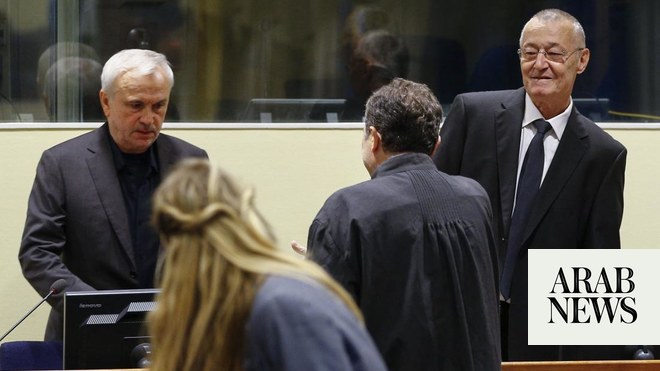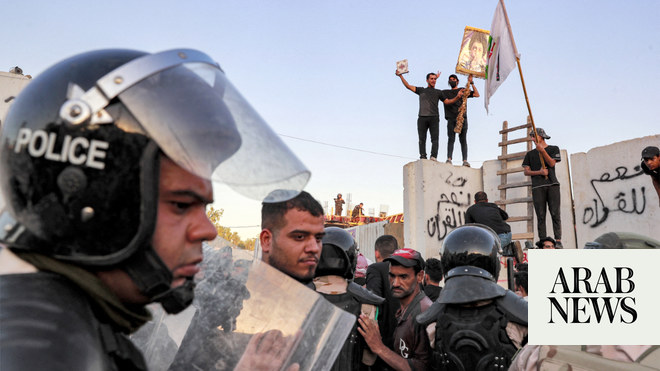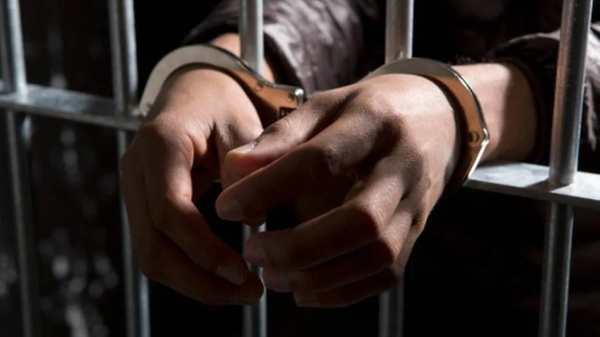
Judges rejected appeals by the late Serbian president Slobodan Milosevic"s state security service boss Jovica Stanisic and his deputy Franko Simatovic
Prosecutors hailed the verdict as crucial because for the first time it formally linked atrocities in Bosnia to the regime of Serbia"s Milosevic
THE HAGUE: A UN court slapped two former Serbian spy chiefs with longer prison sentences Wednesday in the last major Hague war crimes trial from the 1990s Bosnian conflict.
Judges rejected appeals by the late Serbian president Slobodan Milosevic’s state security service boss Jovica Stanisic and his deputy Franko Simatovic against their 2021 convictions, and increased their original jail terms from 12 to 15 years.
The court found that Stanisic, 72, and Simatovic, 73, had been part of a criminal plan to “ethnically cleanse” non-Serbs from large parts of Bosnia and Croatia — reversing their acquittal on that charge at the initial trial.
Prosecutors hailed the verdict as crucial because for the first time it formally linked atrocities in Bosnia to the regime of Serbia’s Milosevic, who died in custody in The Hague in 2006.
“It’s really important,” chief prosecutor Serge Brammertz told reporters outside court.
“It’s the only decision we have with the direct involvement of officials from Belgrade convicted as part of a joint criminal enterprise.”
Munira Subasic, president of one of the “Mothers of Srebrenica” associations that campaigns for justice for victims of the 1995 massacre, said the verdict could help ease the tensions that still plague the Balkans.
“Without truth, there is no justice. Without justice, there is no trust. And without trust, there is no reconciliation,” Subasic told reporters.
Only Stanisic was in court for the verdict, wearing a blue jacket and wide-collared white shirt, and occasionally wringing his hands. Simatovic watched by videolink from his cell.
The court upheld the pair’s convictions for the war crime of murder and the crimes against humanity of murder, persecution, forcible transfer and deportation.
It said they had aided and abetted a Serb death squad that terrorized the Bosnian town of Bosanski Samac in April 1992 with killings, rapes and looting.
But judges also found them guilty of being part of a broader conspiracy to commit wider crimes across the Balkans, and for being responsible for a murder in Croatia in June 1992.
“The appeals chamber dismisses Stanisic’s and Simatovic’s appeals in their entirety... and imposes a sentence of 15 years” on each, head appeals judge Graciela Gatti Santana said.
“Stanisic and Simatovic shared the intent to further the common criminal purpose to forcibly and permanently remove the majority of non-Serbs from large areas of Croatia and Bosnia and Herzegovina.”
Stanisic has already served seven years and Simatovic just over eight years, the judge added.
Suspects including Bosnian Serb political leader Radovan Karadzic and military chief Ratko Mladic have previously been sentenced to life by the Hague tribunal, but it has been harder to link crimes to Serbia itself.
Prosecutor Brammertz said Wednesday’s verdict showed that “political leadership from neighbor countries, here in particular from Belgrade, were involved in the planning of those large ethnic cleansing campaigns.”
The Stanisic and Simatovic case has been running for two decades, making it the longest and the last at the UN tribunal dealing with crimes from the wars that tore apart Yugoslavia after the fall of communism.
The pair were arrested in 2003 and cleared at an initial trial in 2013, but the court ordered a retrial.
“This pronouncement marks a milestone in the mechanism’s history... The appeals chamber pronounces the last appeal judgment,” Gatti Santana said.
The court, formally known as the International Residual Mechanism for Criminal Tribunals (MICT), has taken over cases left over from the International Criminal Tribunal for the former Yugoslavia (ICTY).
The ICTY closed in 2017.
The Balkans wars left about 130,000 people dead and millions displaced.
Tensions continue to simmer in the region, with clashes erupting on Monday in northern Kosovo between ethnic Serbs and NATO-led peacekeepers.












